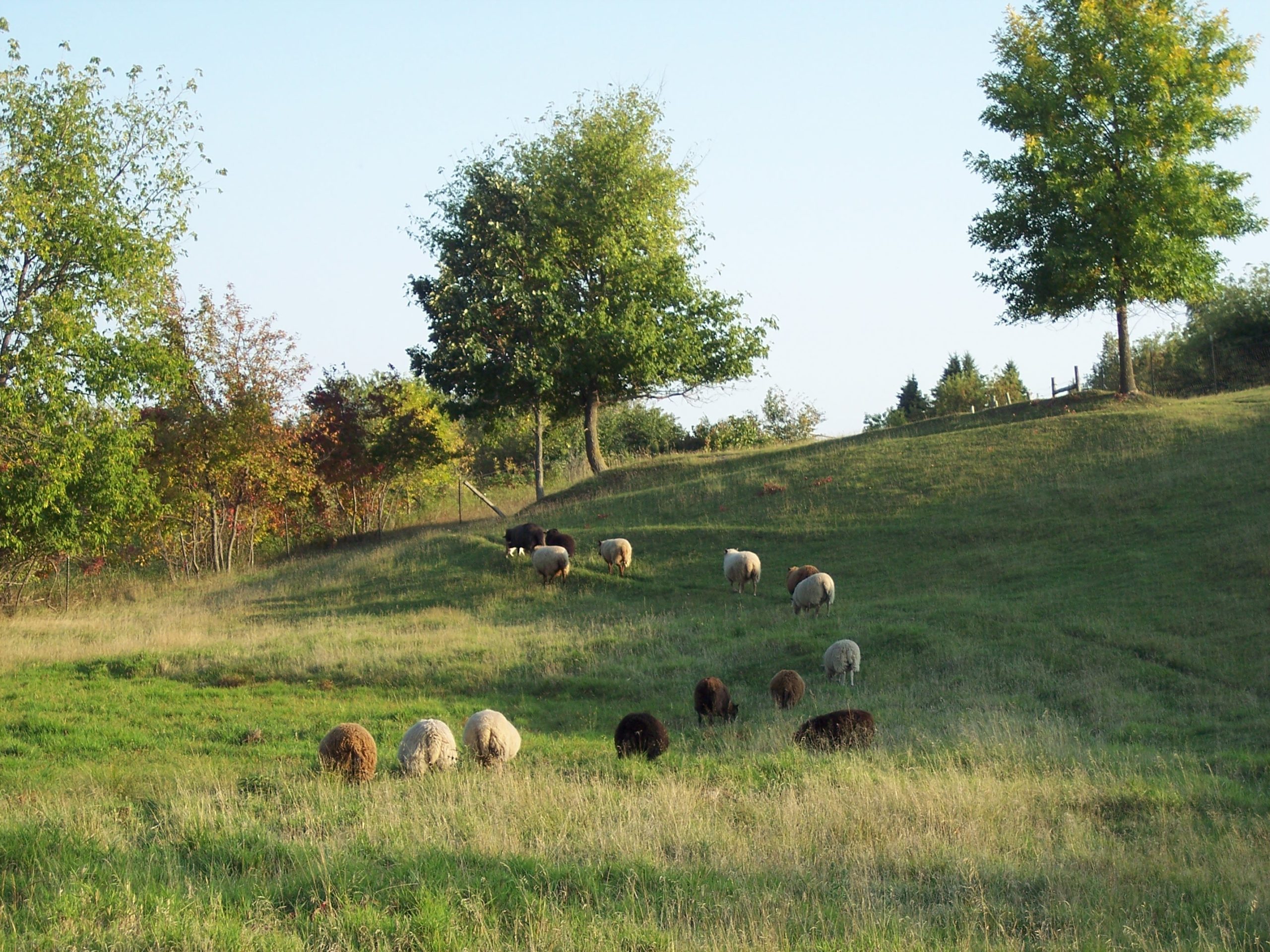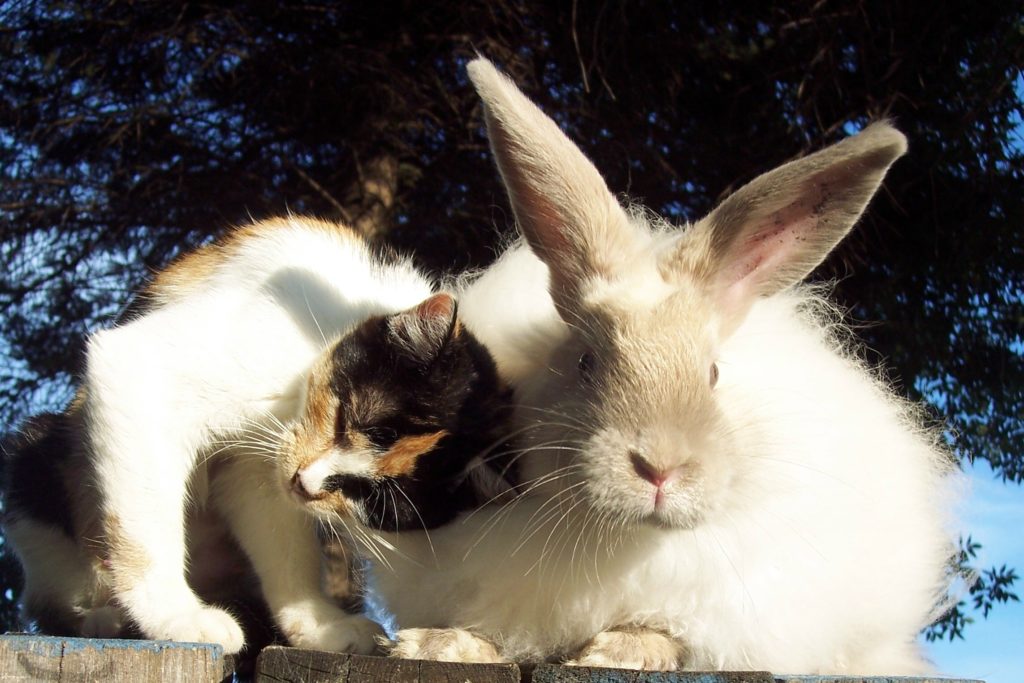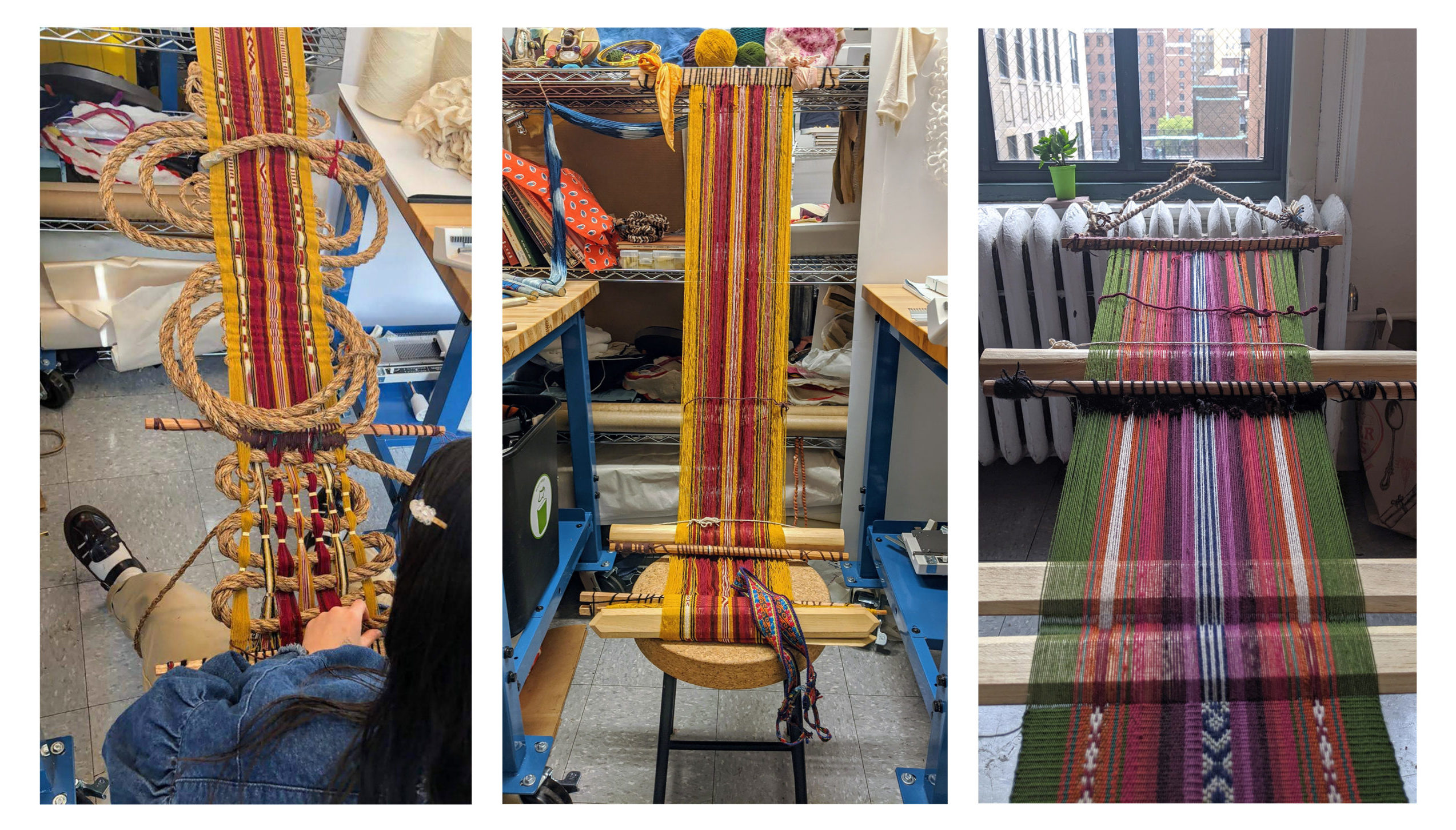This week we’re sharing an essay authored by local fiber producer Kathy Sletto. Kathy is a shepherdess residing near Alexandria, Minnesota. To see and hear more about her work, hop over to her Studio Tour!
Lessons Learned From A Flock of Sheep
My husband and I own an eighty-acre farm, nestled amid the hills, trees, and lakes of west-central Minnesota. We’ve been here more than thirty years, raising/supporting/enabling an alarming number of wool-bearing creatures.
It started with a small flock of Shetland sheep. Since then, the farm has unwittingly evolved into a sanctuary of sorts for long-haired renegade goats, angry rabbits, berserk llamas, and one exotic four-horned African sheep that didn’t make the cut as a house pet. Many of these animals came to us as rescues, having worn out their welcome at their previous homes. Most are sheep in various shapes and sizes, ranging in age from newborn lambs to toothless geriatrics. They have found a home here, and they serve a purpose. The annual shearing of the flock provides fiber and wool for hand spinners, weavers, and other fiber artists.
This diverse flock’s only occupation is to grow wool. They do a grand job of it, too, producing soft, gorgeous fleece ranging in color from creamy white to golden brown to mahogany to jet black—an entire spectrum of rich natural tones and shades, like oil paints at the earthy edge of an artist’s palette: raw sienna, red ochre, and burnt umber. To grow thick, healthy fleece, the sheep must spend most of their day grazing. They graze voraciously. They don’t know how to do it any other way.
Shepherds spend a lot of their time watching sheep. Watching, mostly, to see that none of the lambs have wandered away—or worse—been taken by coyotes. We watch to see that none of the old ones have fallen and can’t get up (this is not a phenomenon limited to humankind). When you spend that much time watching sheep, you’re bound to notice things. I’ve learned much from nearly thirty years of sheep-watching, most of which is mind-numbingly trivial. However, there are some real kernels of wisdom that can be gleaned from watching sheep.
Sheep are good at hunkering down to get through a crisis, which is what we’re all learning to do now. For me, sheep have always been a kind of bellwether for humanity. They instinctively know and understand things that humans struggle to learn the hard way. Since the beginning of time, sheep have lived their lives according to one essential truth. We humans are only now beginning to grasp this important concept: what happens to one of us (to the least of us) happens to all of us.
Sheep are motivated by the flocking instinct. It’s what keeps them alive. Their entire lives—from birth to death—are played out within a small, close community upon these eighty acres. Everything they experience is within the context of the flock, which feeds the body and soul and builds community. Sheep know instinctively that one cannot thrive at the expense of others.
Sheep at rest are a picture of peace and relaxation. It’s obvious they aren’t worried about whether it will rain tomorrow or whether the harvest will provide enough to feed them all come fall. Sheep live totally in the moment. Even when scary things are going on in the world around them, sheep are able to find some good in their current situation. They experience life minute by minute, hour by hour, day by day. Unlike humans, sheep are not consumed by niggling second thoughts and anxieties. None of these things distract the sheep from their glorious enjoyment of a fine spring day. They luxuriate in the warmth of the sun on their faces as they relax on a grassy hillside, lambs safely tucked up by their sides.
When the sheep aren’t grazing, they are ruminating. Sheep are ruminants—cud chewers. Relaxation is a key factor in this type of digestion, which is vastly different from that of carnivores, who typically wolf down their meals on the run. Another definition of rumination is to contemplate, to consider, to ponder. This, too, sounds a lot like the behavior of the flock as it lies under the trees, collectively chewing its cud and gazing off into the middle distance.
Sheep have a natural inclination for harmony and balance. Though they are social creatures, they know the value of solitude and quiet. They don’t differentiate between the white, brown, black, tan and spotted members of the group. But they do know and remember their sisters, their mothers, their children. They form lifelong bonds and develop fierce loyalties.
Sheep don’t have hobbies, and they don’t engage in meaningless busy work. They don’t observe holidays, weekends, or pursue leisure time activities. They don’t really have any vices to speak of. They spend their time concentrating on things that matter: grazing, growing wool, raising the kids, contemplation, and resting together in the shade. There’s not a lot of wasted activity. Sheep are the kind of animal that can eke out a living on poor soil and under unfavorable conditions. Where other types of livestock would falter and die, sheep are persistent. They keep their heads down, continue grazing, making the best of available resources.
In this time of uncertainty, we humans might learn a lesson or two from the flock. Sheep aren’t usually known for their intelligence or common sense, yet they somehow manage to get the best of their shepherds on a regular basis. Maybe we’re not giving them enough credit.
If sheep were to offer advice on how to live, here’s what I think they’d tell us. Graze voraciously during the daylight hours (i.e. be diligent workers and do the best possible job with the resources at hand). Spend plenty of time in contemplation. Enjoy the company of ordinary people.
The sheep would tell us to love and protect our children and to remember our mothers and our sisters; to take special care of those who are very old and those who are very young and those who struggle to keep up with the rest. The sheep would advise us to work hard at maintaining the life and harmony of our communities. Tune out the noise, trust your instincts, and shelter with your flock. What happens to one of us happens to all of us. We’re all in this together.





